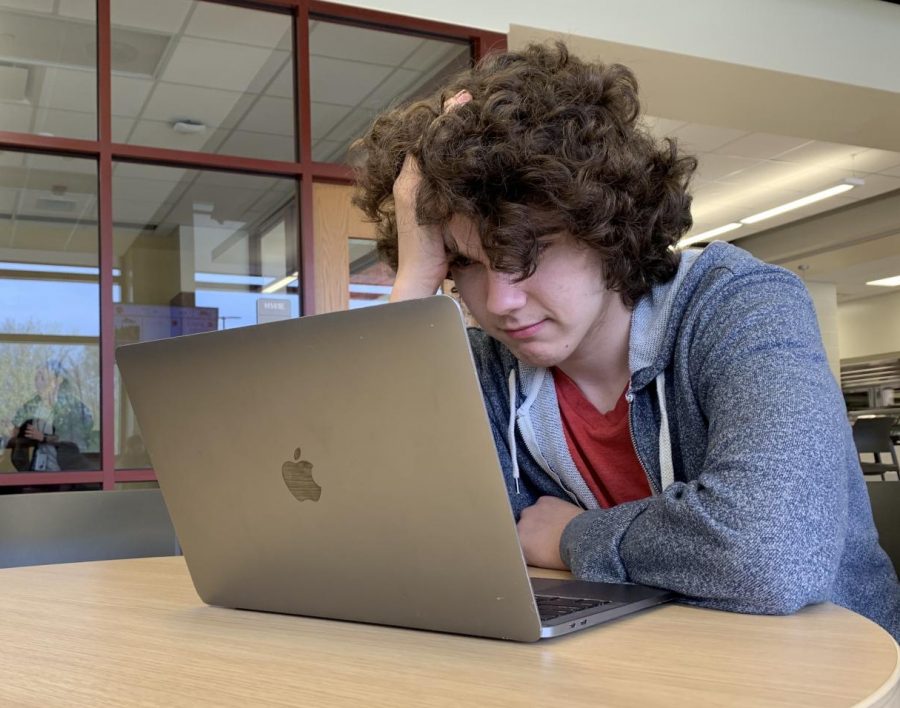State of senioritis, how to overcome it
Senior Zack Elliott struggles with his homework in the CCA during flex period on Apr. 26.
Heavy eyes and whimpering cries can be heard in the bedrooms of students staying up late to work on the final weeks of homework for the last year of their lives in high school. With the end of the school year coming up, the feeling termed “senioritis” begins to arise.
Senioritis is the feeling that students feel towards the end of their final year in high school. The feelings associated with this include a lack of motivation to finish work, lack of participation in class, or just basic laziness that consumes the mindset of a student.
During the final two months of school is when students start to feel the strength of senioritis. At this point in the school year, most students know what their post-high school plans are and are eager to start the impending chapter in their journeys.
“Most students are almost done, and they’ve put so much energy into the past 3 or 4 years and they’ve mentally shut down,” senior Miya Wai said. “Everyone is braindead and has no motivation to get their work over with, but they want to move onto college or start their post-high school plans.”
According to an article by Ashley Wallis from Southern New Hampshire University, academic advisor Abby Tincher said senioritis is a real thing people experience and that it may strike when you know you’re going to pass a class, and if you’ve lost all motivation, you may not care if you pass with an A or with a D. This along with the unwillingness to get school work completed in a timely manner are two great examples of the effects senioritis has on students.
However, all hope is not lost when there are ways to stay focused and maintain the dedication to finishing high school strong.
“I feel like my goal at this point is to survive senioritis by taking it one day at a time and looking for that light at the end of the tunnel,” senior Grant Brown said. “Taking interesting classes is also what keeps me interested throughout the school day.”
Common ways that students can help themselves is to surround themselves with peers who will encourage each other to stay focused and to maintain contact with reality. A reality check is important because there is still work to be done before the school year is out, and bad choices can lead to road bumps in the future.
Other ways students can remain focuses on their work is to limit distractions and to find subjects they are interested within the curriculum they are in. By incorporating interests with daily tasks, the workload begins to feel less like work, and more of something that passes the time.
“A lot of encouragement from teachers and your presence in the classroom is super important, but teachers assigning busy work is part of the problem,” Wai said. “Implementing goals or certain things to look forward to towards the end of the year is something to motivate students and to keep them on task.

Samuel Bauer is a current senior. He is involved with sports, namely soccer, and academics, and has a passion for photography, film, and science which...






